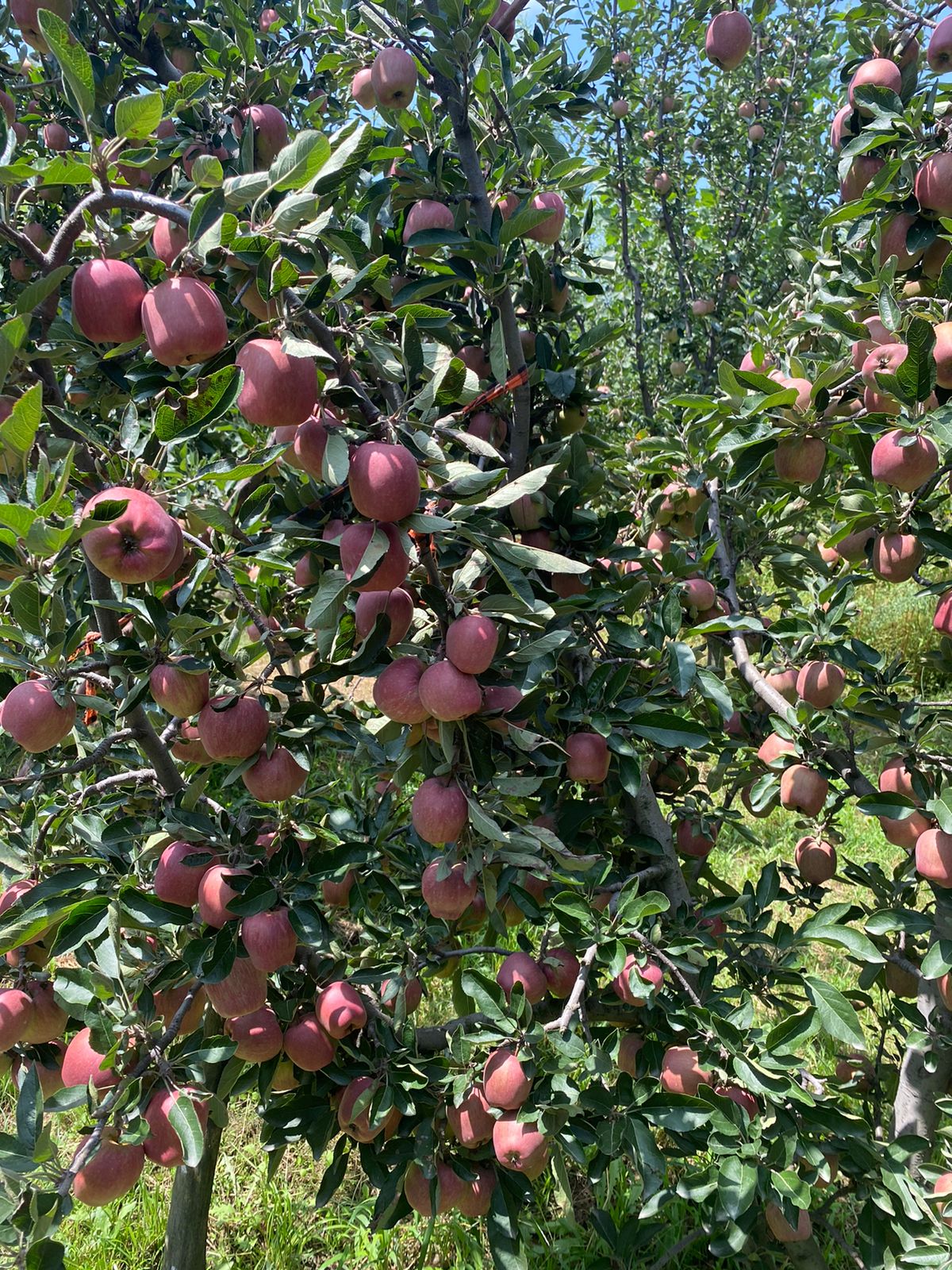
![]() By Rameez Makhdoomi*
By Rameez Makhdoomi*
Srinagar: Jammu & Kashmir and Himachal Pradesh are known as the apple baskets of India. As the harvest season is approaching, in both regions, local apple growers are worried to an extent because of the government’s decision to slash import duty on Washington apples from 70 per cent to 50 per cent. They fear the 20 per cent reduction in the import duty will significantly increase the import of Washington apple, which will reduce market space for the premium local produce.
In two weeks time or so, the harvest season of Kashmiri apples will begin. From mid-September towards the end of November there will be the harvest of different varieties of world-famous Kashmiri apples. This time, the Union Government has decided to abolish the retaliatory tariff of 20 per cent on Washington apples by the end of September.
Also read: Will US apples taste sour to domestic producers in India?

“If the Washington apples come in large quantities then it would have a considerable impact on Indian apples,” Fayaz Ahmad Malik, president of the Fruit Mandi at Sopore, which is one of the largest apple mandis in the world, told Global Bihari.
The apple industry is the backbone of Kashmir’s economy and is rooted in the tradition and history of Kashmir for the last 800 years. It is Kashmir’s largest employment generator, providing 400 man-days of work per year per hectare of orchards, employing 3.5 million people, and contributing about 10 per cent to its Gross State Domestic Product (GSDP).
However, as Syed Irfan, a small-level orchardist, pointed out, although apple is the backbone of the Kashmiri economy, the income of small farmers is still low. “As managing an apple farm involves a lot of hard work from pruning to spraying, if everything remains favourable then the small-level farmers earn one to two lac per annum which is still low considering the effort,” he explained, but also highlighted that the big apple farmers could earn in millions.
It may be mentioned that the Union Government imposed a tariff on the red and juicy variety of fruit around four years ago when President Donald Trump was in power in the United States. Malik said a careful analysis of the issue of reducing import duty on Washington apples “in a realistic sense” was the need of the hour. Although he claimed that for the moment, the reduction in the duty of Washington apples would have a “very limited impact” on the domestic front, “we need to keep also in mind that if in coming times the import duty is reduced further on foreign apples then the market for Indian apples within the country would face damaging impacts”.
Irfan, on his part, appealed to the government that the present cut of tariff on Washington apples should not now be reduced more as it will then have damaging consequences for local produce.
It is worth noting that Washington is home to over 30 types of apples that range in flavour, texture, and colour. According to the Washington Apple Commission, “They all have a few things in common. You can count on every Washington apple to be juicy, nutritious, and delicious”.

Yet, the astonishing fact is that the Kashmir Valley is home to as many as 113 varieties of apples. Out of these, seven are cultivated commercially – namely, Shireen, Firdous, Delicious, Ambri, Treal, Maharaji, Kesaer and Royal Misri.
The Chief Minister of Himachal Pradesh, Sukhvinder Singh Sukhu has already warned that the Union Government’s decision to reduce the import duty on Washington (US) apples from 70 to 50 per cent is against the interests of apple growers of his state.
Malik, a renowned face of Kashmir’s apple industry, though, sounds more optimistic. “The impression being given by some ill-informed voices that it would wipe out the market for domestic apples is totally wrong. Yes, there would be a bit of negative,” he said. He urged the Union Government to also make more effort to promote the apples of the country whether they are grown in Kashmir, Himachal or Uttarakhand.
It may be mentioned that the fruit mandi of Sopore is Asia’s second-largest fruit mandi, and the biggest when it comes to apple trade. The Sopore mandi is connected with over 450 fruit mandis across India and all the fruit produce is sent directly to those mandis from here. Countries like Bangladesh, Nepal and Bhutan are also directly supplied with apples from the Sopore mandi.
*Senior journalist




